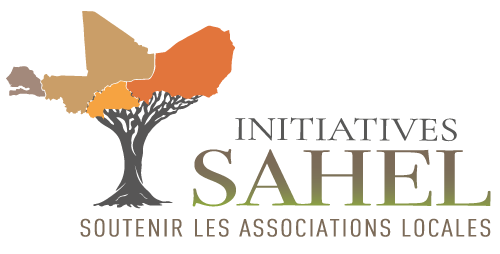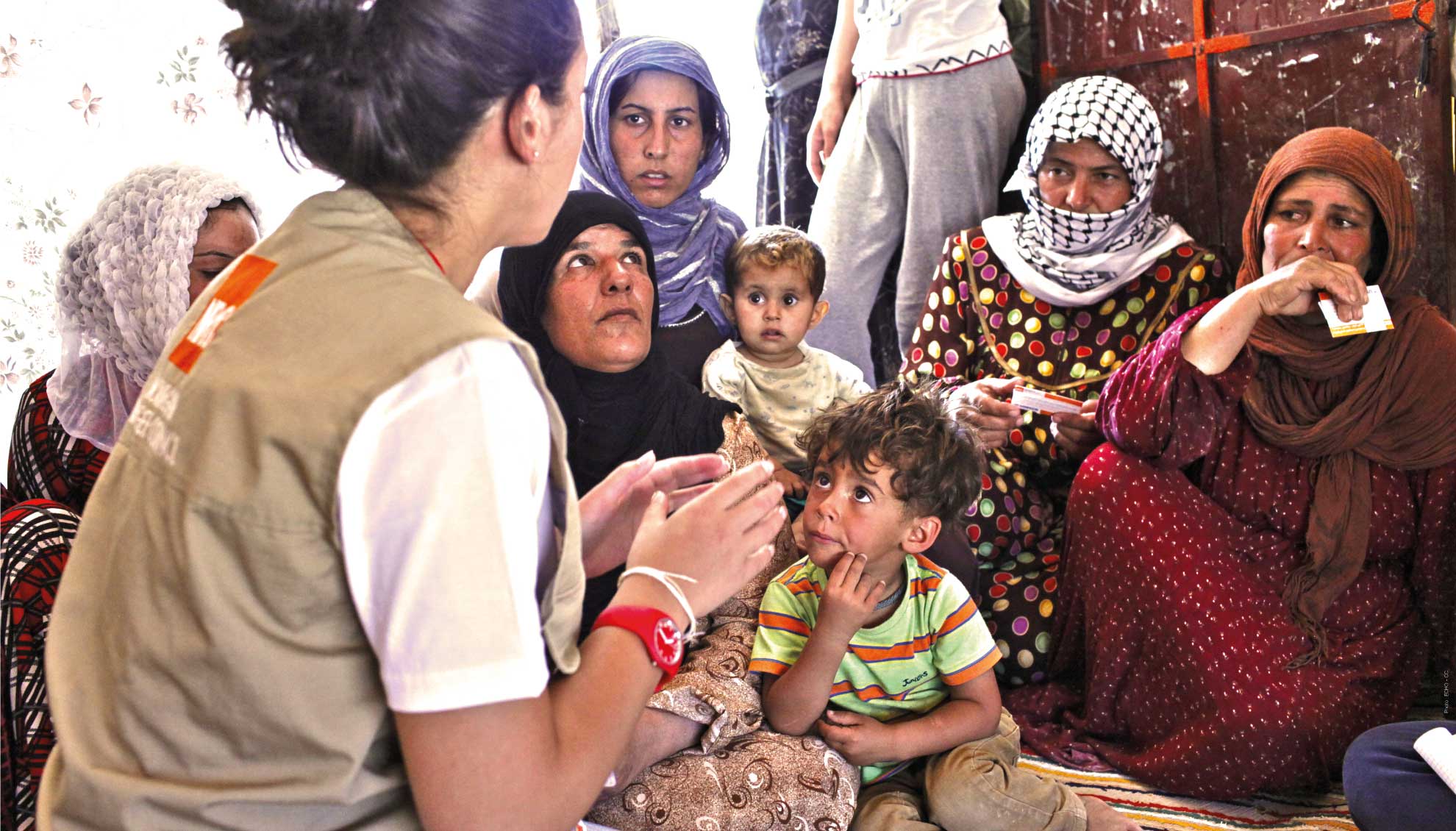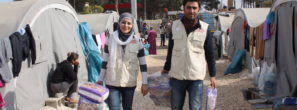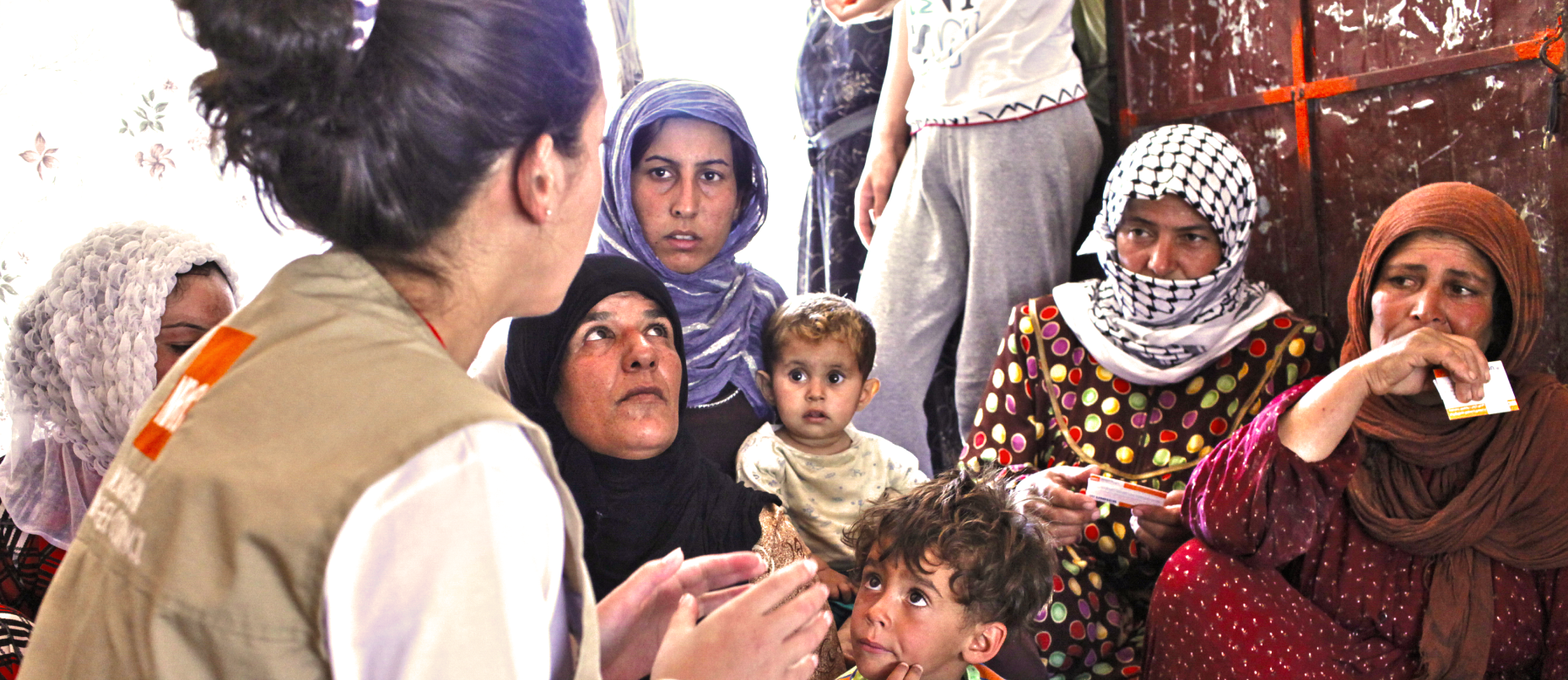
SOHP 2020: professionalisation, a guarantee of the quality of humanitarian aid
Bioforce today releases the study The State of Humanitarian Professions 2020 (SOHP), the result of a year-long consultation with more than 1,500 humanitarian professionals.
For the first time, this study gathers and analyses key figures on 24 humanitarian professions, as well as on recruitment practices and professional development in the sector.
In addition, the SOHP study demonstrates the need to coordinate on the challenges of professionalising humanitarian teams, with 19 recommendations to be discovered in the final report.
First international study on humanitarian professions
A year ago, Bioforce launched the State of Humanitarian Professions 2020 (SOHP) study based on one idea: the quality of humanitarian action is largely dependent on the quality and professionalism of the humanitarian workforce. With the support of Monaco’s International Cooperation Office and of an Advisory Group including Humanity & Inclusion, ALNAP, PHAP, CHS Alliance, NRC, WFP and ICRC, Bioforce has since drawn up the first international State of Humanitarian Professions.
Nearly 1,000 humanitarians have expressed their views during interviews, workshops in 10 countries, and in a large-scale survey. These initial findings were presented on November 17 at an online conference attended by 566 humanitarian professionals from all continents who joined this platform for reflection and dialogue.
For the first time, these contributions provided quantified, measured and decisive information on 24 humanitarian professions recognised by the sector and made it possible to describe their evolution, the competencies they require, their level of professionalisation. More broadly, this massive consultation provided useful and shared information on recruitment practices and professional development in the humanitarian sector.
What the SOHP study highlights
- Existence of career paths in the humanitarian sector: 54% of study participants and 79% of conference participants plan to work there for at least 10 years.
- Distinguishable competencies for humanitarian work exist and are valuable: a total of 86% of of the conference participants believe that their humanitarian profession requires competencies that are distinguishable from an equivalent non-humanitarian profession, or that their profession has no non-humanitarian equivalent (and is therefore unique). This compares with 82% from the survey results.
But the SOHP study also warns us
These competencies are insufficiently recognised and verified, as recruitment processes in humanitarian culture and practice place a strong emphasis on humanitarian experience. These practices are an obstacle to the integration of new comers and to the diversity of profiles, particularly of national actors at the era of localisation. They entail risks of favouritism, recruitment of “like-minded” people, even nepotism or abusive behaviour, in the absence of measurable and verifiable data. In addition, failing to showcase these competencies can weaken accountability to the beneficiaries of our aid.
The way in which we recruit our teams thus represents a real risk for those receiving the aid. This is the opposite of professionalisation, which implies career paths based on verifiable competencies, certified and recognised by a professional community.
What next?
The success of the SOHP study confirms the interest that the humanitarian sector is now giving to professionalisation issues. 95% of the 566 participants at the conference want this work, which one of the experts described as “a milestone and timely research”, to be continued in the future. Through SOHP, Bioforce demonstrates the need for a collective space for consultation, sharing initiatives, and coordination on these issues, with 19 recommendations to be discovered in the final report.
From one end of the human chain of humanitarian aid to the other, from the one who is committed to providing aid to those who receive it, the professionalisation of the humanitarian sector will be a strong contribution to the localisation process and the guarantee of assistance provided by professionals whose competencies are verified, certified and recognised.
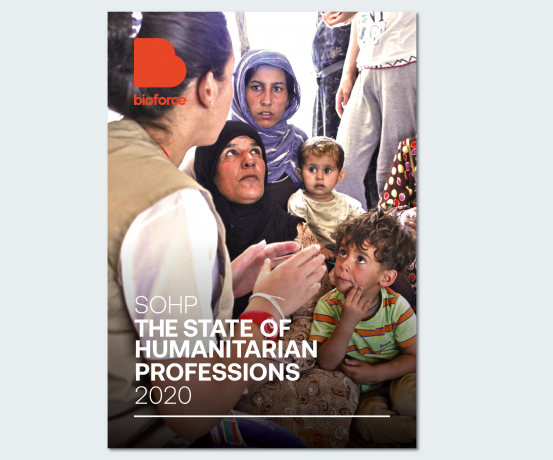
Download the full report
Analysis and synthesis of interviews of key informants, survey, 11 local workshops in 10 countries, additional study on the impact of covid-19 on humanitarian professions, and recommendations from the conference on professionalisation in the humanitarian sector. Also available in French.
With the support of

